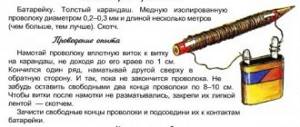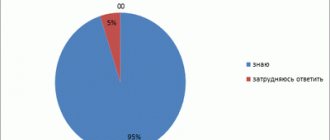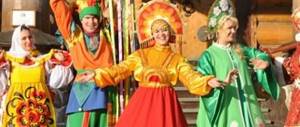§ Holidays in Germany in the summer in August 2020
For a list of August holidays for the following years, go to the top of the page.
| date | Name of the holiday | Title in German |
| August 8, 2020 (Sat) | Augsburg Peace Festival * | Augsburger Friedensfest |
| Public holiday only in the city of Augsburg. A peace festival commemorating the peace agreement and the restoration of the religious situation between Protestants and Catholics. At the festival, a peace prize is awarded, various events dedicated to peace are held, and a children's drawing of the holiday is selected. | ||
| August 10, 2020 (Mon) | St. Lawrence Day * | Laurentiustag |
| St. Lawrence Memorial Day. Meteorite falls during this period of summer are called Tears of Laurentius (German: Laurentiustränen). Processions of cooks are associated with the holiday, since Lawrence is considered their protector. There are coats of arms and fraternities of St. Lawrence. The folk festival Cranger Kirmes in the city of Herne is also associated with it. | ||
| August 15, 2020 (Sat) | Assumption of Mary * | Maria Himmelfahrt |
| Celebration of the Ascension of Mary, mother of Jesus Christ. Bouquets of herbs and flowers are used in the celebration. During the 30 days after the holiday, pilgrimages take place in some places. | ||
*
— A public holiday, which is an additional day off in some German states (see table of German public holidays).
* — Religious holidays that are not particularly popular in Germany are highlighted in grey.
Spring holidays in Germany
Karfreitag On the night of Good Friday - the Friday before Easter - Jesus was arrested, interrogated and sentenced to death on the cross the next morning. On the way to the place of execution, he was ridiculed and had to carry his cross to Golgotha. There Jesus was nailed to the cross, where he died.
Ostern . Easter, the celebration of Jesus' resurrection from the dead, is the most important holiday of the year for Christians. But Easter - unlike, for example, Christmas - does not have a clear fixed date in the year. In the Western Church (Catholics), Easter falls on the first Sunday after the first full moon at the beginning of spring. Thus, the earliest date for Easter could be March 22, and the latest could be April 25. But Easter will not fall on April 25 yet, not until 2038. Karfreitag, Ostern and Osternmontag are officially non-working days in Germany. Easter and Christmas are the most important religious holidays in Germany!
1. Mai. The first of May is a public holiday “Labor Day” in Germany, Austria, partly in Switzerland and in many other countries. The origins of this holiday go back to early 1886 in America, where a mass strike was held in the fight for an eight-hour working day. In 1946, after World War II, May 1 was established as Labor Day - but with limited permission for demonstrations.
Muttertag . Mother's Day in Germany falls annually on the 2nd Sunday of May and is an unofficial holiday in honor of mothers. Due to Mother's Day always falling on the second Sunday in May, the earliest date for Muttettag is 8 May and the latest is 14 May. This is not a public holiday, but simply a cultural custom. In the GDR, Mother's Day was not celebrated; instead, International Women's Day was celebrated on March 8th.
§ Holidays in Germany in spring in April 2020
For a list of April holidays for the following years, go to the top of the page.
| date | Name of the holiday | Title in German |
| April 1, 2020 (Wed) | Day of jokes and laughter | 1. April, Narrentag |
| Day of laughter and jesters, celebrated in many countries around the world. People in Germany make fun of each other and say "Aprilscherz" or "April, April". | ||
| April 5, 2020 (Sun) | Holy Week | Karwoche |
| In Christianity, the week preceding Easter commemorates the suffering, death and resurrection of Jesus Christ. Each day of the week includes certain memorable events, customs and traditions. | ||
| April 5, 2020 (Sun) | Palm Sunday | Palmsonntag |
| Christian holiday, the last Sunday before Easter, the beginning of Holy Week. Also called Palm Sunday. It is considered the day of Christ's entry into Jerusalem on a colt, whom people greeted with palm branches. Today, it is traditional to cut off the branches of willow and other trees. Confirmation takes place in Protestant churches. | ||
| April 9, 2020 (Thu) | Holy Thursday | Gründonnerstag |
| Maundy or Holy Thursday, the day of Christ's last supper with his disciples on Passover. Services are held in churches. | ||
| April 10, 2020 (Fri) | Good Friday * | Karfreitag |
| Good or Good Friday - it is believed that the basis of the holiday is an event associated with the death of Christ and the expectation of his resurrection. The name of the holiday comes from the old German word char (sadness, crying). On this day, the Way of the Cross is performed in Catholic churches. | ||
| April 11, 2020 (Sat) | Holy Saturday | Karsamstag |
| Great or Holy Saturday is the last day of Holy Week, a day of silence and prayer, preparation for Easter. Services are held on the night before Easter. | ||
| April 12, 2020 (Sun) | Easter * | Ostern |
| One of the most important holidays in Christianity, celebrated in connection with the resurrection of Jesus Christ. | ||
| April 13, 2020 (Mon) | Easter Monday * | Ostermontag |
| Second day of Easter, street processions and walks are accepted | ||
| April 19, 2020 (Sun) | White Sunday | Weisser Sonntag |
| White or Fomino Sunday is the first Sunday after Easter. White clothes of children, candles, flowers are a symbol of purity and innocence. On this day, churches hold communion or confirmation rituals. | ||
| April 23, 2020 (Thu) | World Book and Copyright Day | Welttag des Buches und des Urheberrechts |
| A day established by UNESCO for the purpose of education and development of cultural traditions. In libraries, book authors read their works, book exhibitions and fairs are held. | ||
| April 23, 2020 (Thu) | St. George's Day * | Georgstag |
| Church holiday in honor of St. George. Traditionally an important day for peasants and villages. Traditions of horse processions, bells, images of horsemen. | ||
| April 30, 2020 (Thu) | Walpurgis Night * | Walpurgisnacht |
| An ancient custom, celebrated from April 30 to May 1, associated with the belief in witches and evil spirits. On this night, fires are lit, children change clothes, make a lot of noise, tell scary stories, lovers jump over the fires. Various superstitions are also common. This night is also associated with the onset of the May Day holiday. | ||
*
— A public holiday in Germany, which is an additional day off.
* — Religious holidays that are not particularly popular in Germany are highlighted in grey.
§ Holidays in Germany in winter in February 2020
For a list of February holidays for the following years, go to the top of the page.
| date | Name of the holiday | Title in German |
| February 2, 2020 (Sun) | Bringing the Lord * | Darstellung des Herrn |
| Bringing Jesus Christ to the temple by his parents on the 40th day after his birth. On this day, pancakes and crepes are traditionally baked. | ||
| February 3, 2020 (Mon) | Saint Blaise's Day * | Tag des heiligen Blasius |
| A church service is held on this day. | ||
| February 14, 2020 (Fri) | Valentine's Day | Valentinstag |
| A holiday popular in Germany in recent years: lovers give each other gifts. | ||
| February 20, 2020 (Thu) | Fat Thursday | Schmotziger Donnerstag |
| The beginning of the main carnival week, as well as the last Thursday before Lent | ||
| February 24, 2020 (Mon) | Pink Monday | Rosenmontag |
| The culmination of the carnival season and its end. Day of festive folk processions (Rosenmontagszug). | ||
| February 26, 2020 (Wed) | Ash Wednesday | Aschermittwoch |
| The day of the beginning of the 40-day Lent. Traditionally, churches sprinkle ashes on the heads of parishioners or place ashes on their foreheads as a symbol of repentance. The liturgical color is purple. | ||
* — Religious holidays that are not particularly popular in Germany are highlighted in grey.
§ Holidays in Germany in the summer in June 2020
For a list of June holidays for the following years, go to the top of the page.
| date | Name of the holiday | Title in German |
| June 1, 2020 (Mon) | Pentecost, 2nd day * | Pfingstmontag |
| Second day of Pentecost | ||
| June 5, 2020 (Fri) | Saint Boniface's Day * | Tag des heiligen Bonifatius |
| Memorial Day for the missionary and church reformer, considered the apostle of all Germans. | ||
| June 11, 2020 (Thu) | Feast of Corpus Christi * | Frontleichnam |
| A Catholic holiday with a procession of the priest and church parishioners through the streets with a reminder of the Eucharist and the body of Christ given for the redemption of people. | ||
| June 19, 2020 (Fri) | Feast of the Heart of Christ * | Herz-Jesu-Fest |
| The Feast of the Sacred Heart of Jesus Christ in the Catholic Church is associated with the veneration of the heart of Jesus, as a symbol of his love. The symbolism of the holiday is a heart and a cross. The tradition is associated with the cult of the Heart of Christ, widespread in the Middle Ages and mysticism. | ||
| June 24, 2020 (Wed) | The day of Ivan | Johannistag |
| Holiday in honor of the birth of John the Baptist (Ivan Kupala). Many superstitions and mysticism are associated with it: lighting a fire, opening a door to a fairy-tale world, wreaths or crowns, night walks, etc. | ||
| June 29, 2020 (Mon) | Peter and Paul Day * | Peter and Paul |
| Day of remembrance of the two apostles of Jesus Christ, Peter and Paul, who played a special role in early Christianity. Celebrated especially in Bavaria; For the holiday, a bonfire (German: Petersfeuer) is lit and, according to custom, a straw doll is burned. | ||
*
— A public holiday in Germany, which is an additional day off.
*
— A public holiday, which is an additional day off in some German states (see table of German public holidays).
* — Religious holidays that are not particularly popular in Germany are highlighted in grey.
§ Holidays in Germany in winter in January 2020
For a list of January holidays for the following years, go to the top of the page.
| date | Name of the holiday | Title in German |
| January 1, 2020 (Wed) | New Year * | Neujahrstag |
| The arrival of the first day of the new calendar year. The holiday is celebrated on the night of December 31 to January 1. Celebrate with fun: fireworks, champagne, night festivities. | ||
| January 6, 2020 (Mon) | Feast of the Three Kings * | Heilige Drei Könige |
| Epiphany, Epiphany or Feast of the Three Kings, the last day of the Christmas period. A holiday in memory of the appearance of Christ into the world. | ||
| January 22, 2020 (Wed) | Saint Vincent's Day * | Tag des heiligen Vinzenz |
| Day of the Christian Martyr Saint Vincent. Often associated with the Bird Wedding holiday | ||
| January 25, 2020 (Sat) | Bird wedding | Vogelhochzeit |
| A custom, a children's holiday, the beginning of the bird mating season. Usually celebrated in kindergartens and primary schools. | ||
*
— A public holiday in Germany, which is an additional day off.
*
— A public holiday, which is an additional day off in some German states (see table of German public holidays).
* — Religious holidays that are not particularly popular in Germany are highlighted in grey.
§ Holidays in Germany in spring in March 2020
For a list of March holidays for the following years, go to the top of the page.
| date | Name of the holiday | Title in German |
| March 8, 2020 (Sun) | International Women's Day * | Internationaler Frauentag |
| International Women's Day, March 8, originally arose as a day of women's struggle for equality, political rights and emancipation. In Germany, this holiday is not common. March 8 is an official holiday and day off from work only in Berlin. | ||
| March 25, 2020 (Wed) | Annunciation to Mary * | Maria Verkündigung |
| Church holiday in connection with the message of the angel Gabriel to the Virgin Mary, the mother of Jesus Christ, about his future birth. | ||
*
— A public holiday, which is an additional day off in some German states (see table of German public holidays).
* — Religious holidays that are not particularly popular in Germany are highlighted in grey.
St. Martin's Day
When naming the most famous German holidays and the customs associated with them, one cannot forget St. Martin's Day. Many German residents mention this celebration as one of their favorites; it takes place on November 11th. There is even a beautiful legend relating to this event, the main character of which is a Roman legionnaire who rescued people from trouble.
St. Martin's Day is adored not only by adults, but also by children. Children run through the streets, lighting their path with lanterns and singing songs. At this time, their parents are preparing a festive dinner. Roast goose is considered an obligatory guest on the festive table, without which it is impossible to imagine this event. Interestingly, St. Martin's Day is respected in other countries: Austria, Switzerland.
Winter holidays in Germany
Adventszeit - pre-Christmas time. The term Advent comes from the Latin verb “advenire = arrival, appearance.” This is the time of preparation for the celebration of the birth of Jesus. The period from the first to the fourth Sunday of Advent is preparation for Christmas and anticipation of the bright holiday. During Advent, many residents of Germany decorate their homes, windows, roofs and facades of houses with appropriate decor. Traditional things at this time: Adventskranz (Advent wreath) with four candles and Adventskalender. Adventskalender is a calendar for the partial month of December with 24 windows that need to be opened one every day from December 1 to December 24. The first Adventskalender appeared in printed form in Munich in 1908.
December 6 – Nikolaustag . On this day, on behalf of St. Nicholas, children in Germany receive small gifts and sweets on the day of his veneration according to the church calendar. Usually the day before, by the fireplace or just at the door, children leave a Nikolausstiefel - a polished shoe, an embroidered sock or a beautiful bag in the hope that St. Nicholas will put a pleasant surprise inside. Usually chocolate, tangerines and small gifts are placed in Nikolausstiefel. This is how the first pre-Christmas gifts appear.
Heiligabend/Weihnachnten (December 25 and 26) . Christmas is widely known and celebrated all over the world. Weihnachten in Germany is a long-awaited and beloved holiday that Germans celebrate with all their hearts. The celebration of Christmas is based on the birth of the baby Jesus of Nazareth, the religious founder of Christianity. There are many legends and stories about this. The Catholic Church especially emphasizes the immaculate conception of Mary, who learned of her pregnancy from an Angel sent by God. “The Night Before Christmas” is called Heiligabend (Christmas Eve) and always falls between the 24th and 25th of December. Christmas for Germans is a family holiday. Its integral traditions are: a meeting of relatives, a festive dinner with family and friends, a beautiful Christmas tree and, of course, gifts.
Silvester . New Year marks the last day of the outgoing year, as well as the night from December 31 to January 1 of the next year. As a rule, the New Year is celebrated with fireworks and a symbolic glass of champagne. In Germany, on this night, young people often get together and have parties. Thousands of people take to the streets in Berlin to celebrate the New Year at the Brandenburg Gate and wish each other happiness in the coming year. Guten Rutsch!
January 1 , the first day of the new year, is a public holiday in Germany, Russia, Austria, Switzerland and many other countries around the world.
Heilige drei Könige - also known as the Day of the Three Holy Kings - falls on January 6th . The "Three Kings" are Balthasar, Caspar and Melchior. According to the Christmas story of the Gospel of Matthew, these were three wise men who, guided by the Star of Bethlehem, walked to the birthplace of Jesus, to the city of Bethlehem. Later, from the three wise men, “three kings” emerged. In Germany, this day is an official holiday only in Bavaria, Baden-Württemberg and Saxony-Anhalt.
Rosenmontag is not a fixed day, but depends on the day on which Easter falls. Rosenmontag is celebrated 42 days before Easter and is the pinnacle of the Fasching carnival season. The parades in Cologne, Düsseldorf and Mainz are widely known. More than a million people line up on the “train”—equivalent to the population of the city of Cologne. Cologne's Rosenmontagszug is the largest in Germany, its length is up to 7.5 km. About 150 tons of sweets are thrown into the crowd and quickly snapped up by the audience. The first organized Rosenmontagszug (Faschingsumzug) took place in 1823.
Fastnacht . Decorated processions move through the cities and villages of southern Germany, northern Switzerland, and western Austria, performances are held in squares, treats are served in the streets, German beer and mulled wine flow like rivers.
Aschermittwoch and Fastenzeit (“Ash Wednesday” and the beginning of Lent). The date of Ash Wednesday is also related to the day on which Easter falls. Ash Wednesday occurs 40 days before Easter Saturday, the end of Lent. The 40 days of Lent remind all believers of the 40 days that Jesus spent in fasting and prayer in the desert.
§ Holidays in Germany in spring in May 2020
For a list of May holidays for the following years, go to the top of the page.
| date | Name of the holiday | Title in German |
| May 1, 2020 (Fri) | Labor Day May 1st * | 1. Mai |
| Labor Day is a day off from work in Germany. Initially associated with the struggle for the prohibition of child labor, the protection of workers' rights and the 8-hour working day. Political organizations organize debates and rallies on this day. | ||
| May 1, 2020 (Fri) | May holiday | Maifest |
| A traditional May festival with the erection of a maypole, a May queen and dancing, the origins of the holiday traditions are linked to fertility rituals. | ||
| May 10, 2020 (Sun) | Mothers Day | Muttertag |
| International Mothers Day is a day to honor mothers, on this day children give flowers, drawings and other gifts to their mothers. It is believed to derive from the ancient Greek cult of the mother; Throughout history it has also been used as a day for mothers to unite in the fight for peace. | ||
| May 15, 2020 (Fri) | Cold Sofia Day * | Kalte Sophie |
| St. or Cold Sophia's Day. Peasants and farmers plant flowers, seedlings, and also move livestock to the fields after this day, it is believed that warm weather will stabilize after the period of the Ice Saints from May 12 to 15 (Pankratia, Servation, Boniface and Sophia). | ||
| May 21, 2020 (Thu) | Ascension of Christ * | Christi Himmelfahrt |
| Celebration associated with the ascension of Jesus Christ to heaven on the 40th day after his death and resurrection. Worship services are held, and fertility customs, such as processions through fields, are rarely practiced. On this day, Germany also celebrates Father's Day. | ||
| May 21, 2020 (Thu) | Father's Day | Vatertag |
| A holiday celebrated in honor of fathers. On this day they go out and walk in nature with carts, drink alcohol and eat sausages. Children write cards and give gifts to their fathers. | ||
| May 31, 2020 (Sun) | Pentecost * | Pfingstsonntag |
| Celebration in connection with the formation of the Christian Assembly on the 50th day after Easter and the outpouring of the Spirit (Spirit Day). The celebration is accompanied by such traditions as: horse processions, round dances, tournaments and competitions, driving cattle to the fields. In Germany, a mill festival is also celebrated on this day. | ||
*
— A public holiday in Germany, which is an additional day off.
* — Religious holidays that are not particularly popular in Germany are highlighted in grey.





